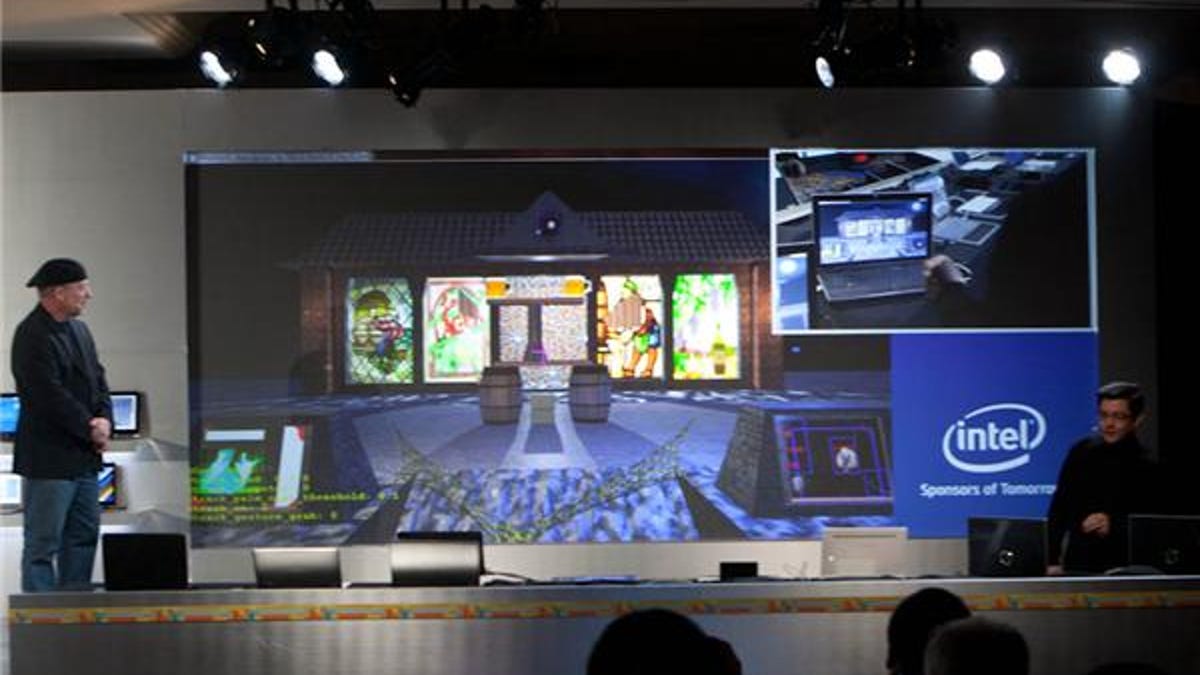Kinect coming to laptops? Why?
Microsoft's Kinect motion control technology might be on laptops sooner than you think. Whether it makes sense...well, that's another story.

Hey, look at this: Kinect on a laptop. OK, so there we go. According to The Daily, companies are well on their way to making laptops--or, at least, laptop prototypes--running Windows 8 and equipped with Kinect motion camera hardware instead of standard webcams.
The Daily got to see some of this technology first hand on what it thinks were Asus laptops. Intel's CES 2012 press conference featured a stage re-enactment of a similar Kinect-like idea on a laptop, shooting a virtual catapult in a game.
The real question here is, who's going to use this?
For those not able to easily type, a motion-control camera could be useful. Maybe motions combined with keyboard controls could add touch-like gesture vocabulary to a hinged device like a laptop in a more logical/ergonomic way than, say, a touch screen. Gaming, media- and application-switching controls, and universal access for disabled individuals are the three uses that The Daily's Matt Hickey discusses. I agree with the latter the most, but I'm skeptical as to how much I'd use motion otherwise.
My biggest concern would be with the sensitivity radius. The Kinect camera on the Xbox 360 needs several feet of space in order to register movement, although third-party peripherals can trick out the sensitivity to be a bit closer. Does this modified version of the Kinect technology improve on its range and accuracy? Kinects can also be finicky with light sensitivity, which makes me wonder if this would be a problem outdoors. Maybe I'd reach and grab videos and other objects in a virtual manner like "Minority Report." Still, based on my experiences with Kinect, accuracy could be an issue for fine movement controls such as video editing (or, any sort of virtual touch-pad analog). A touch-oriented interface like Metro on Windows 8 is extremely similar to the Xbox 360's new dashboard, suggesting an easy Kinect transition (large icons laid out in a grid), but I'd find using gesture-based Metro in addition to my regular Windows 8 computing to be a weird chore.
What would you use Kinect on a laptop for, other than possibly games? File your suggestions below. I'm a future-minded person, but I'm having a hard time thinking of anything.
(Via The Daily)

